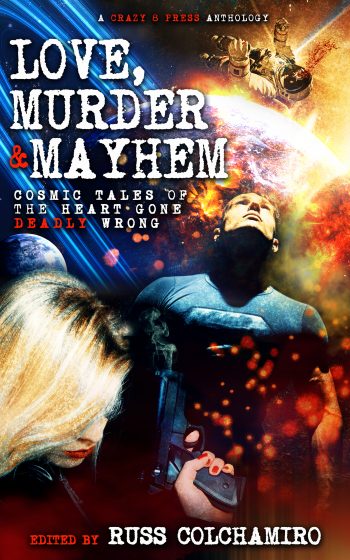By Lois Spangler
 Listen: the moment you utter science fiction and love, murder, and mayhem all in the same breath, my brain immediately goes future-noir. And future-noir bubbles up in my mind as a cyberpunk detective story.
Listen: the moment you utter science fiction and love, murder, and mayhem all in the same breath, my brain immediately goes future-noir. And future-noir bubbles up in my mind as a cyberpunk detective story.
Great! A detective tries to solve a murder whose motives lie in love. But that’s a broad canvas, with all kinds of variables. So I thought about the love angle. Romance immediately came to mind, but I’d just seen a run of old films with the usual detective-dame dynamic, and to be completely honest, I’ve never tried romance—I haven’t had the guts. So I thought about other kinds of love, and the bonds of family came immediately to mind.
Another topic that I’ve been thinking about a lot lately is artificial intelligence, and robots in general. A few years ago, a friend of mine helped put together an interactive installation that was all about the common cultural perceptions of robots and how humans are learning to respond to them, and the problems that arise from a dearth of empathy for things that can be dismissed as mere machines.

